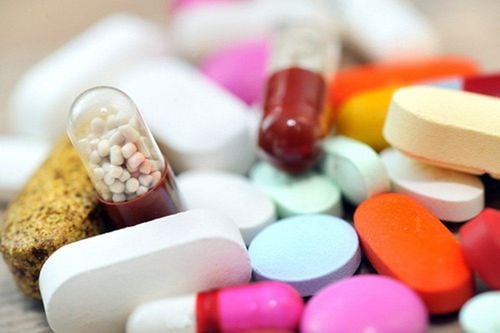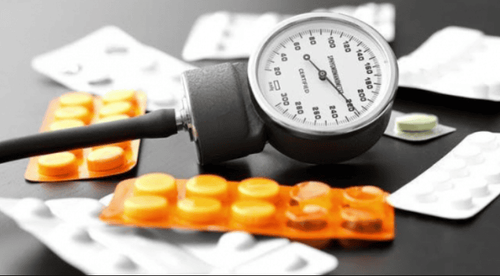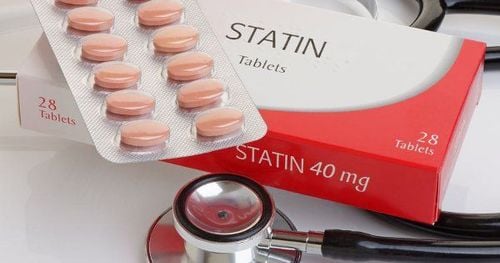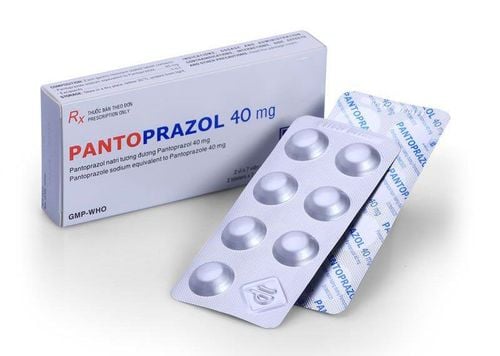This is an automatically translated article.
The article is professionally consulted by Master, Doctor Pham Van Hung - Department of Medical Examination & Internal Medicine, Vinmec Danang International General Hospital.Hypertension and angina are frequently and strongly linked. According to a statistic, about 15% of hypertensive patients present with angina and vice versa, about 70% of patients with angina have hypertension. Besides, hypertension and angina pectoris are also manifestations of some dangerous diseases, such as coronary artery disease with high mortality rate.
1. Overview of hypertension
A blood pressure reading below 120/80 mmHg is considered normal, when blood moves through the body at a certain rate. But if diagnosed with high blood pressure, the reading is always above 140/90 mmHg, blood will move through the arteries at high pressure, putting more pressure on the vessel walls, damaging the heart and other organs. blood vessel.Complications of hypertension can include:
High blood pressure is a cardiovascular risk factor, causing atherosclerosis. Atherosclerosis is a medical condition in which fatty plaques build up and gradually narrow the lumen of the arteries. When this atherosclerosis occurs in the coronary arteries (arteries that feed the heart) and increases to a degree that causes severe narrowing of the artery lumen, it will cause symptoms of angina pectoris and myocardial infarction. Patients with hypertension often have other metabolic disorders such as dyslipidemia, insulin resistance, etc. are also thought to be risk factors for atherosclerosis. If high blood pressure is not detected in time, it can lead to a stroke. Only about 5% of people with hypertension can identify the cause and have the ability to treat it thoroughly, including:
Kidney diseases: Renal artery stenosis, glomerulonephritis, kidney stones... Endocrine diseases: Diabetes, hyperthyroidism, hyperpituitary gland, adrenal tumor... Cardiovascular disease (heart and blood vessels): Aortic valve regurgitation, coarctation of the aorta, regurgitation of heart valves Pregnancy toxicity. The remaining 95% have no known cause of high blood pressure. But it has been recognized that there are several factors that increase the risk or worsen an existing condition:
Race: African Americans are in a higher risk group. Family factors: If your parents, brothers, sisters have high blood pressure, you have a higher risk of developing high blood pressure than other people. The older you are, the greater the risk. Sedentary lifestyle, sedentary, often stressed, smoking, smoking, eating salty, high-fat diet, using a lot of alcohol and stimulants, using hormonal drugs .

2. The relationship between hypertension and angina
Patients with high blood pressure may also experience angina even though the coronary arteries are not narrowed. The cause is thought to be coronary microvascular failure (structural or functional abnormalities of very small coronary arteries).These abnormalities are observed in patients with myocardial hypertrophy caused by severe and long-standing hypertension. In addition, some postmenopausal women with high blood pressure also have symptoms of angina. The cause is thought to be due to a decrease in the levels of the female sex hormone estrogen and affect coronary microvascular function.
When treating hypertensive patients with angina, it is important to distinguish clearly whether angina is due to hypertensive myocardial hypertrophy or true atherosclerotic coronary artery stenosis. cause. Only then can the most appropriate methods of control and treatment be developed.
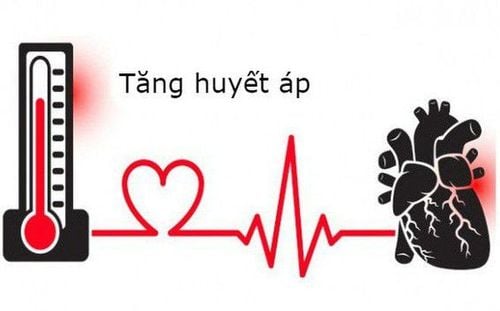
3. Prevention and control of hypertension
Maintaining blood pressure readings at 120/80 mmHg or below is considered the ideal goal. However, depending on the specific case, the target blood pressure readings may be different:For people over 60 years of age, the treatment goal is blood pressure below 150/90mmHg For healthy adults under 60 years of age , blood pressure goal is 140/90 mmHg or less If you have chronic kidney disease, diabetes or coronary artery disease or are at high risk for coronary artery disease, your target blood pressure is 130/80 mmHg or less If you have left ventricular dysfunction or heart failure, or have severe chronic kidney disease, the treatment goal would be 120/80 mmHg or less. In addition, it is necessary to make lifestyle changes and a healthy diet that can help you improve your blood pressure and reduce the risk of hypertensive complications including:
Reduce salt intake (< 6 grams of salt or 1 teaspoon of salt per day). Increase green vegetables and fresh fruits. Limit foods high in cholesterol and saturated fatty acids. Actively lose weight and maintain an ideal weight with a body mass index (BMI) between 18.5 and 22.9 kg/m2 Maintain a waist circumference less than 90cm in men and less than 80cm in women. Limit alcohol consumption: For men, the amount should be less than 3 cups/day and no more than 14 drinks/week. For women, less than 2 cups/day and a total of less than 9 cups/week. The standard cup is equivalent to 330ml of beer or 140ml of wine, or 40ml of spirits. Stop smoking completely. Increase physical activity at an appropriate level: exercise, walk or exercise at a moderate level, regularly about 30 - 60 minutes a day. Avoid anxiety, nervous tension; There should be a proper relaxation and rest regime. Avoid sudden cold.

Vinmec International General Hospital offers customers a hypertensive examination package to check blood pressure measurements to assess their health status and take timely interventions.
If there is a need for consultation and examination at the Hospitals of the national health system, please book an appointment on the website for service.
Please dial HOTLINE for more information or register for an appointment HERE. Download MyVinmec app to make appointments faster and to manage your bookings easily.





